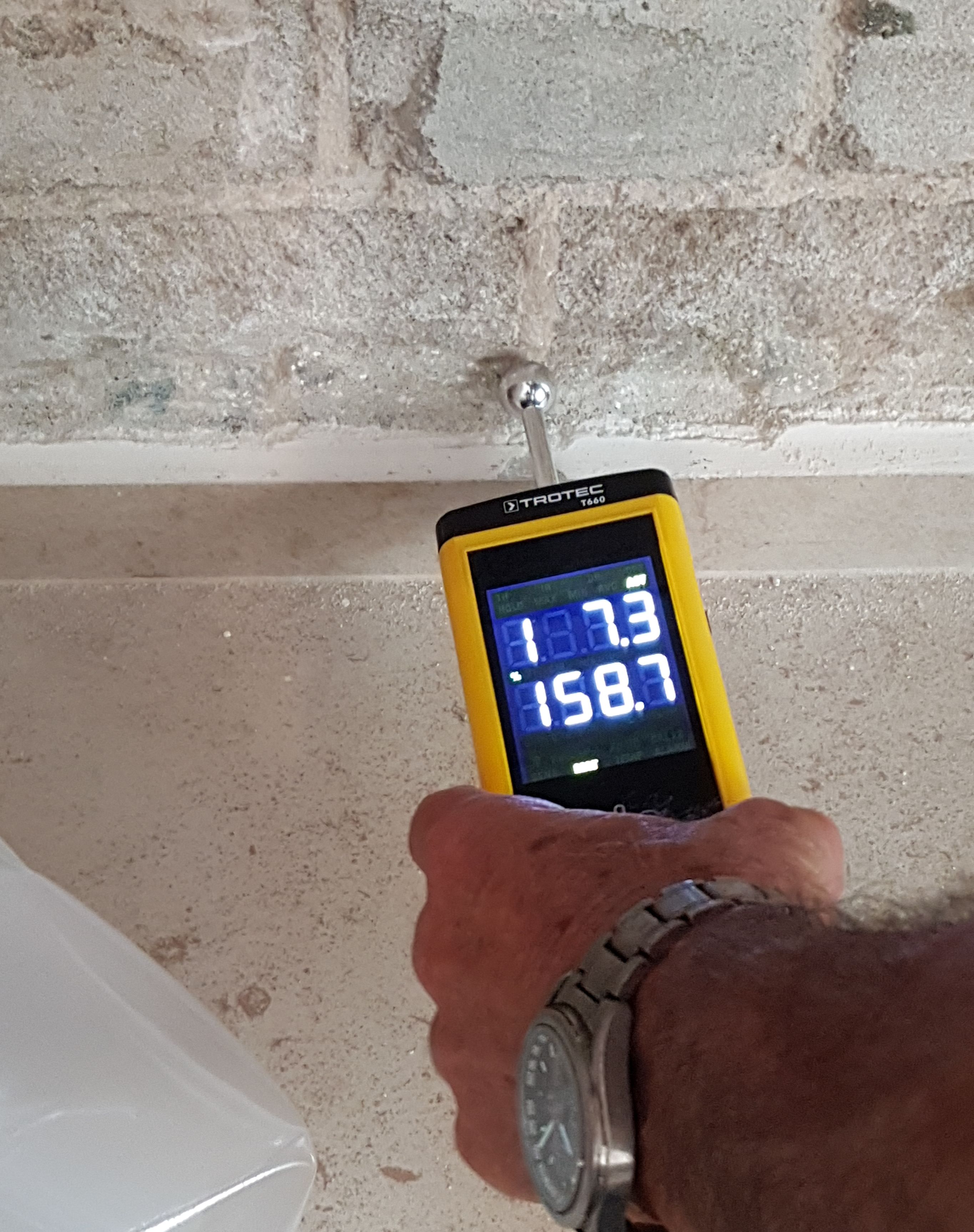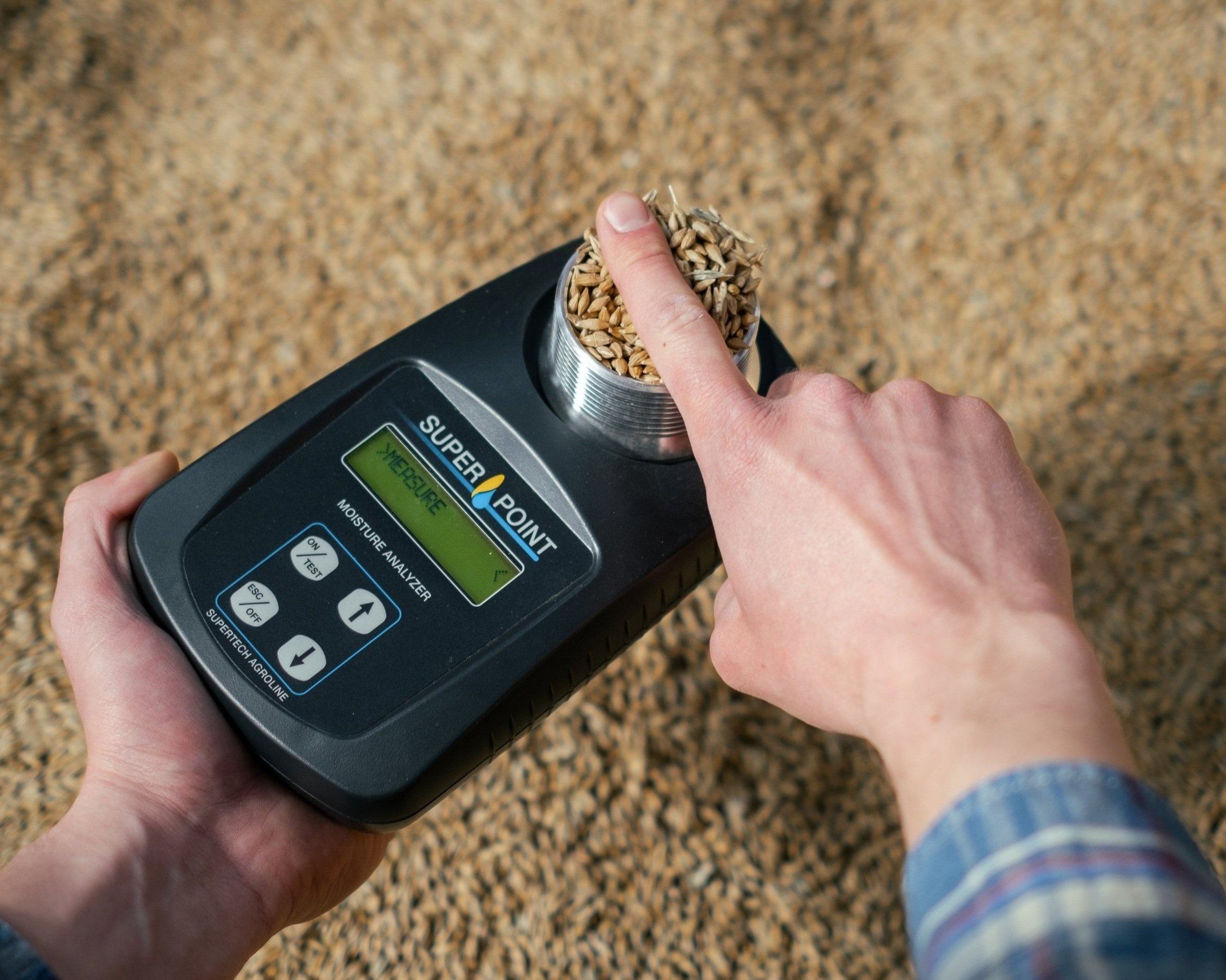Top 10 Advantages of Using a Moisture Meter for Exact Measurements in your house
Top 10 Advantages of Using a Moisture Meter for Exact Measurements in your house
Blog Article
The Ultimate Guide to Moisture Meters: A Comprehensive Summary and Just How They Can Conserve You Cash
Wetness meters offer as vital tools in finding and keeping track of moisture content in materials, aiding in stopping costly damages and making sure the top quality of products. Comprehending the subtleties of different types of wetness meters, their applications, and the possible cost-saving benefits they use can be a game-changer for experts and organizations alike.
Sorts Of Dampness Meters
One common type is the pin-type dampness meter, which gauges the electrical resistance between two pins put into a material. Pinless wetness meters, on the various other hand, usage electromagnetic sensing unit plates to check a larger location without causing damages to the product's surface.

Infrared dampness meters determine the thermal residential properties of a product to establish its moisture material non-invasively, making them valuable for applications where pin or pinless meters might not be suitable. Recognizing the different types of moisture meters available can assist markets select the most ideal tool for their particular dampness measurement requirements.

Benefits of Making Use Of Dampness Meters
Dampness meters use vital benefits in precisely examining and checking wetness degrees in varied materials and environments. One of the primary advantages of making use of wetness meters is the prevention of prospective damage triggered by excess dampness.
Furthermore, using wetness meters can bring about raised power effectiveness. By identifying locations with high dampness levels, such as leaks or inadequate insulation, modifications can be made to improve power preservation and reduce energy costs. In agricultural setups, wetness meters play a critical function in optimizing crop yields by making it possible for farmers to keep an eye on soil dampness levels and make educated watering decisions. On the whole, the benefits of making use of wetness meters span throughout various markets, providing cost-effective remedies and promoting far better high quality control methods.
How to Choose the Right Dampness Meter
Selecting the proper moisture meter involves thinking about key elements such as material compatibility, dimension array, and calibration accuracy. When selecting a dampness meter, it's important to make sure that the meter appropriates for the specific material you will be screening. Various products have differing electric homes that can influence moisture analyses, so selecting a meter designed for your material is crucial for precise results. In addition, consider the measurement variety of the moisture meter. Ensure that the meter can identify dampness degrees within the array needed for your applications. Calibration precision is another critical factor to keep in mind. Choose a moisture meter with reliable calibration to make sure constant and accurate readings. Some meters may need periodic calibration modifications, so understanding the calibration procedure is very important. By carefully assessing these variables, you can select a dampness meter that satisfies your requirements and offers precise moisture measurements for your projects.
Proper Strategies for Wetness Meter Use

Price Financial Savings Via Moisture Meter Applications
How can the strategic utilization of moisture meters lead to considerable expense savings across numerous sectors? Wetness meters play a vital function in cost savings by protecting against possible damages and guaranteeing quality assurance in various fields. In the farming industry, dampness meters help in figuring out the optimum time for gathering plants, stopping over-drying or excess dampness that can affect the last item's high quality. This accurate monitoring assists farmers avoid unnecessary losses and maximize their return.
Likewise, in construction, wetness meters aid stop costly damages by identifying wetness degrees in building products, such as timber or concrete, which can result in architectural issues if not addressed Bonuses quickly. By determining problem locations early on, specialists can take rehabilitative steps to stay clear of considerable fixings or replacements, inevitably conserving time and cash.
In addition, in the food processing industry, moisture meters are crucial for checking product high quality and making sure conformity with safety policies. By precisely gauging moisture content in food products, makers can protect against spoilage, maintain freshness, and minimize waste, causing substantial cost savings. Overall, the tactical application of check this site out wetness meters is a beneficial financial investment that can result in significant price decreases and boosted performance across various industries.
Conclusion
Finally, wetness meters are important devices for determining and identifying dampness levels in different products. By making use of the ideal dampness meter and complying with correct techniques, individuals can properly avoid expensive damages caused by excess moisture. Purchasing a high quality wetness meter can bring about considerable price savings in the future by determining possible concerns beforehand and allowing timely removal. Ultimately, wetness meters are necessary tools for preserving the integrity and durability of products and structures.
Dampness meters offer as vital tools in identifying and checking moisture content in products, aiding in stopping pricey damages and making certain the quality of items. Infrared moisture meters gauge the thermal properties of a material to identify its dampness web content non-invasively, making them helpful for applications where pin or pinless meters may not be suitable.Wetness meters supply indispensable benefits in properly monitoring and evaluating wetness degrees in varied materials and environments. In agricultural settings, wetness meters play a crucial role in enhancing crop yields by allowing farmers to check dirt dampness degrees and make educated watering choices.In verdict, dampness meters are valuable tools for spotting and determining wetness degrees in different materials.
Report this page